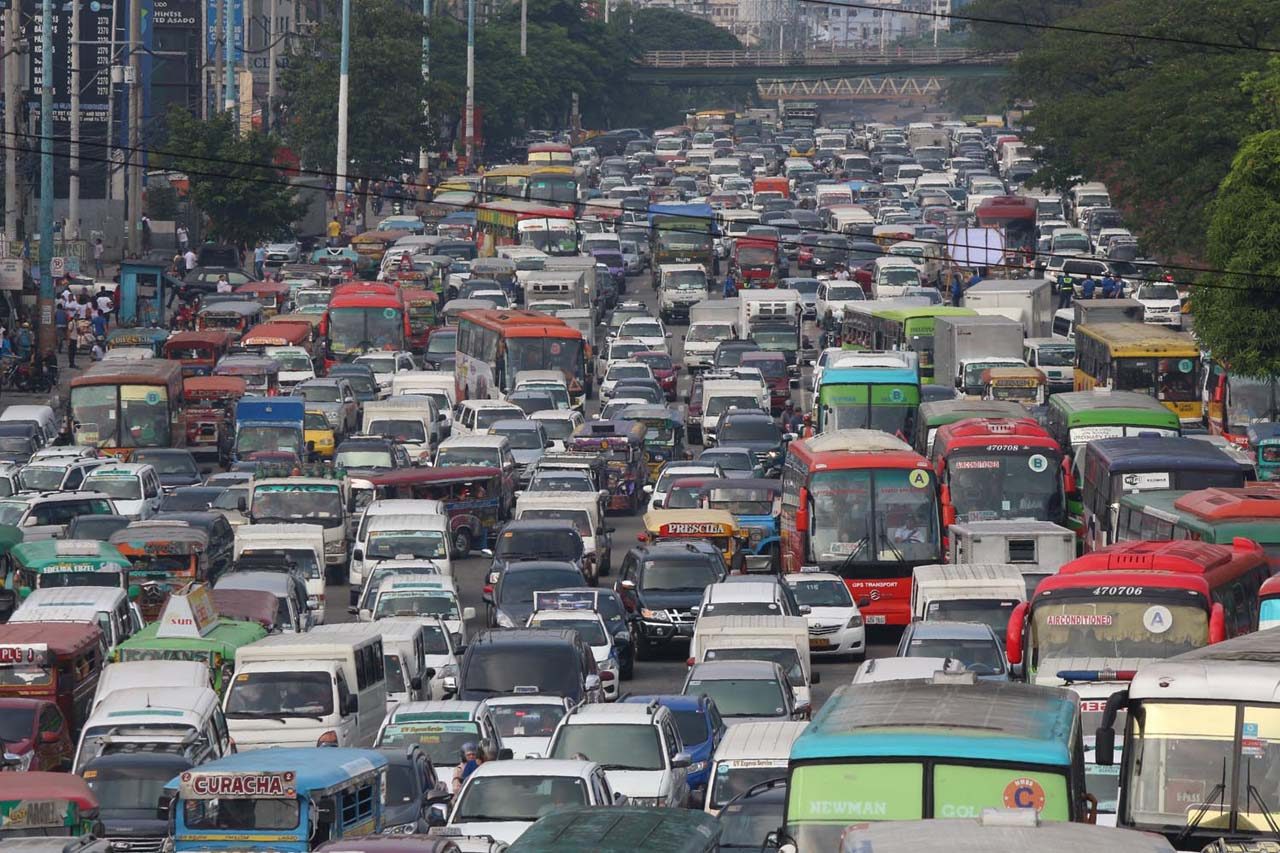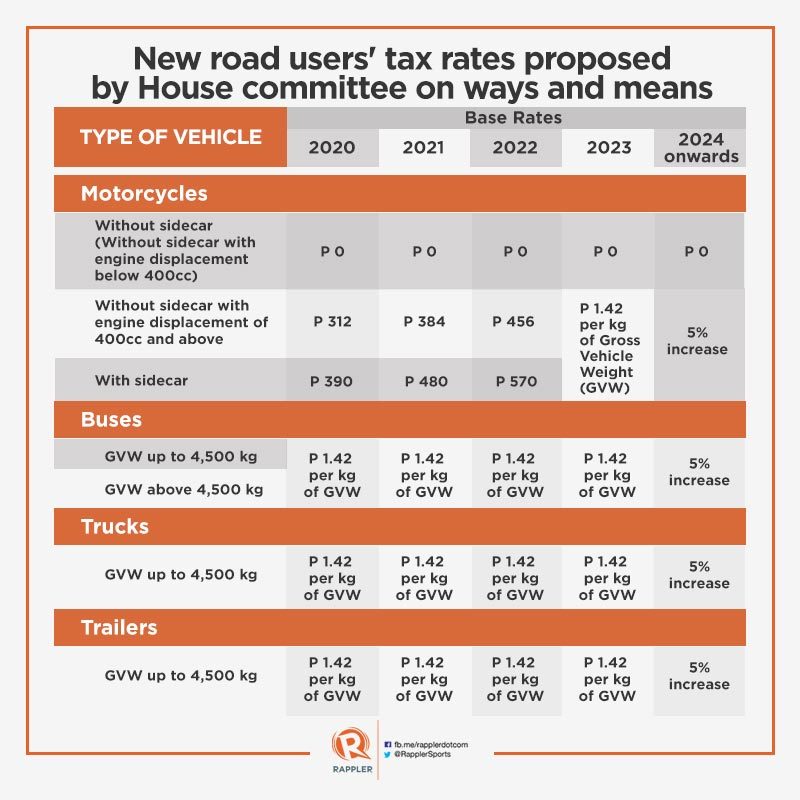SUMMARY
This is AI generated summarization, which may have errors. For context, always refer to the full article.

MANILA, Philippines – Motor vehicles may soon have to pay higher taxes if a bill approved by the House ways and means committee on Monday, November 11, is passed into law.
Lawmakers in the House panel approved the still-unnumbered substitute bill that would impose a hike on the motor vehicle user’s charge (MVUC) or road users’ tax rates starting 2020.
The bill aims to set a unitary tax rate based on the weight for all vehicles, except for motorcycles, private or government vehicles, and for-hire vehicles.
The measure will now have to be sponsored on 2nd reading in the plenary. It will have to be approved on 2nd and 3rd reading before the bill successfully hurdles the House of Representatives.
What are the proposed tax rates? The House bill seeks to impose the following tax rates for owners of passenger cars, utility vehicles, and sports vehicles:

The proposed road users’ tax rates for motorcycles, buses, trucks, and trailers are as follows:

What would the higher taxes fund? House ways and means committee chairperson Joey Salceda estimated the proposed tax increases would generate some P9 billion in government revenue.
The projected revenue would go to the general fund for road safety and the Public Utility Vehicle Modernization Program, which did not have any allocation under the proposed P4.1-trillion budget for 2020.
President Rodrigo Duterte, however, previously said he wants the MVUC revenue to fund the rehabilitation of Manila Bay and the needs of hospitals.
The road users’ tax was the subject of controversy last year, after the Commission on Audit earlier found that P90.7 billion worth of road users’ tax had been “misappropriated.”
The now-abolished Road Board, which was hounded by allegations of corruption and misuse of funds, had managed the multibillion-peso MVUC.
In March this year, however, Duterte signed a law that scrapped the Road Board and channelled the road users’ tax revenues to the National Treasury. – Rappler.com
Add a comment
How does this make you feel?
There are no comments yet. Add your comment to start the conversation.